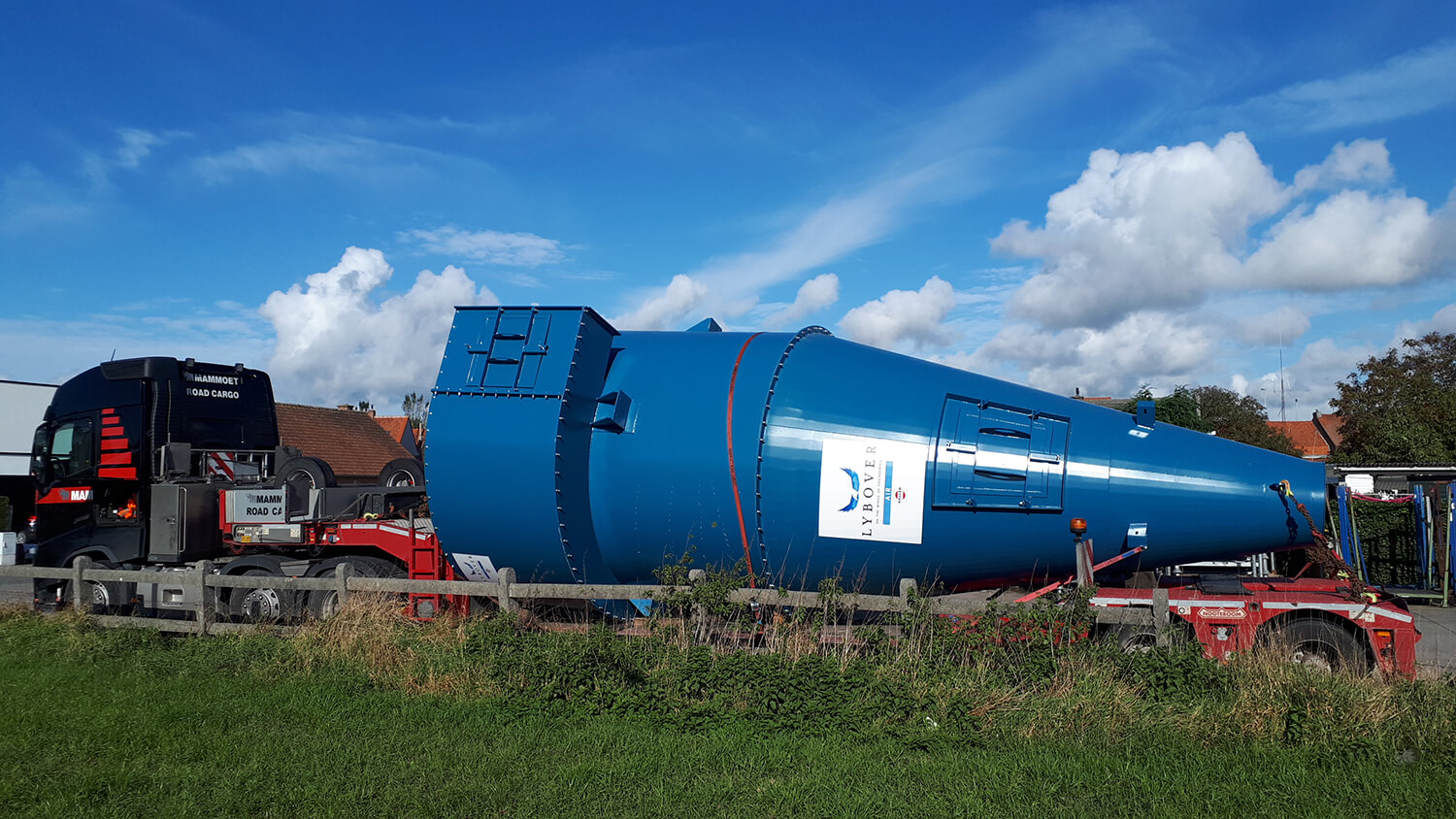For a major upgrade of its production process, scrap specialist Scholz Rohstoffhandel called on the cross-over expertise of Lybover. A project in which knowledge and know-how in the field of AIR and METAL flowed seamlessly together.
Simulations and 3D scans ensured meticulous preparation and a flawless overall rehearsal.
Scholz Rohstoffhandel GmbH recycles and processes metal scrap. The company offers a whole range of metal scrap and processed metal products, including casting scrap, steel, aluminium and aluminium alloys, copper, zinc, lead and tin. Scholz Rohstoffhandel also offers services including the dismantling of steel structures and material collection. At the Scholz site in Laxenburg, near Vienna, Scholz operates one of the largest and most powerful – 2,000 HP – shredding plants in the country.
On 23,000 m², approximately 90,000 tonnes of scrap metal, including 11,000 tonnes of end of life vehicules, are processed annually.
In 2019, Scholz and Lybover stood shoulder to shoulder to significantly boost the capacity, efficiency and sustainability of the Laxenburg site.
Short production stop was crucial
Lybover’s crucial role was the installation of a new Keller shredder extractor. A very important consideration here was that Scholz – understandably – wanted to keep the production stop required for the installation as short as possible.
And so two years of meticulous preparation and planning went into the project. And then the new infrastructure was installed in a record time of just five weeks.
The dedusting system was transformed from a wet system to a wet-dry system.
Managing Director Manfred Födinger: “A new filter system with two fans (135 KW and 200 KW) now ensures a better and more gradual distribution of clean air. The old system ran on fans of twice 250 KW.
“There was the design and construction of the various metal components. But the elements that provide extraction around the shredder also need to be able to cope with extremely high temperatures and even fires or explosions in and around the shredder.
The use of materials such as Hardox is certainly no luxury in such an environment. The cyclones, wet-filter, sifter and all kinds of pipework were produced in Waregem. Simulations and 3D scans were crucial in the preparation and ‘general rehearsal’.
Record production time thanks to 3D scanning
Thanks to this 3D scanning, the new installation could be perfectly drawn and visualised with a significant impact on efficiency and safety. The 3D scanning process also allowed for faster and more accurate measurements and thus shorter lead times. More preparation off-site meant less time on-site. As a result, we were able to keep production downtime during the conversion to an absolute minimum.
“Without detailed engineering based on 3D scanning, we would never have been able to achieve a record production time of five weeks.”
With this investment and collaboration, Scholz Rohstoffhandel is contributing to the most important European climate objective: to significantly reduce emissions by 2025.
“The new installation does not only meet the current emission standards. This installation and the knowledge and expertise of Lybover also make us future-proof and able to cope with the stricter emission regulations that are sure to come”, concludes Managing Director Födinger.

Capacity and purity
In addition to the shredder extraction, Scholz also invested in a sifter installation where the material can be further sorted out after the crushing process. Thanks to this Lybover technology, Scholz not only achieves a higher capacity, but also a higher purity and thus higher quality of the end material. In addition to all the sustainable advantages, this adaptation also provides a considerable financial return.